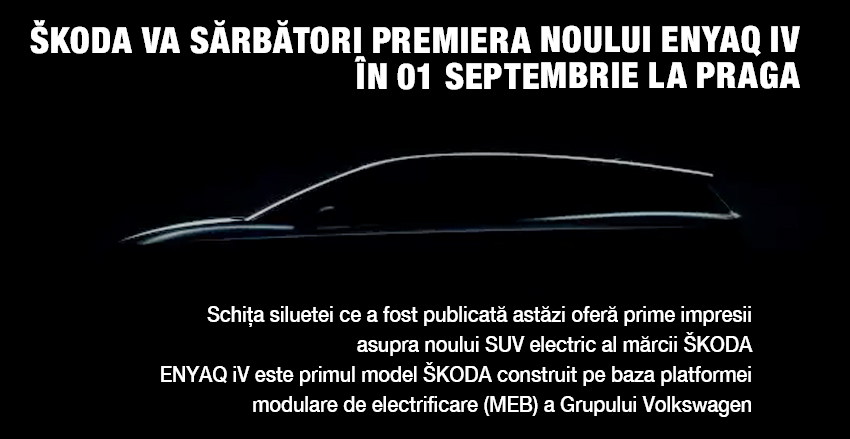Winning over a fiercely competitive tobacco market
Considering the needs of its clients and requests as their top priority, the JTI Romania officials are determined to see even more sustained growth in the near future from their business. With an average share of market (SOM) of 25 per cent in 2008 and 2009, and with regular investment in developing its brand portfolio, JTI is keen on reaching higher results in the domestic market.
Among the first multinationals to invest in the local market, beginning in 1993, through RJR Romania, JTI has already planned more investment behind its brands, its people and its reputation, “the three main pillars of our business in Romania,” as Neil Coupland, the company’s general manager and vice president put it. “Amongst this year’s objectives I would stress increasing our focus on innovation across our key brands in the mid, premium and prestige price segments,” adding “we will extend our focus on our ‘leadership school’ for JTI managers and we will continue to focus on improving workflow synergies across the company.”
The company is represented in all the tobacco segments. Coupland notes that the number of consumers who prefer premium and prestige cigarettes continues to grow and, in line with the market trends, the brands with the largest growth rate in this period are Glamour and Camel. “For example, in the first half of 2009, the volume of Glamour sales doubled as compared to the same period of 2008,” the vice president stated. The company also focuses on the category of consumers who prefer cigarettes with lower tar content.
After setting its operations in , JTI regularly invested not only in diversifying its brands’ portfolio, but also in implementing a stronger domestic business-base in the local market. Coupland recalled, “The year 2002 saw the launch of our direct distribution system, which involved, among others, creating a new IT infrastructure, purchasing a new car fleet, as well as recruiting and training more than 400 sales agents.” The last two years have also been successful: “The turnover reported by JTI Manufacturing soared over 35 per cent in 2008 versus a year earlier, while the turnover of JTI Romania SRL advanced by more than 23 per cent in a year-on-year comparison. However, given the tax burden in our products, the turnover is driven by the excise increase. This will also be influenced by the economic crisis and volatile legislative context.”
The general manager admitted his company is not immune to the crisis, this being an aspect which requires maximum awareness and cost efficiency. “We have had to manage risk much more attentively due to the limitations on credit. We have indentified efficiencies, without affecting the core of the business or the training programs. On the contrary, we continue to invest in the essence of our business: in our brands, in our people and in social responsibility programs.”
Furthermore, JTI takes on different challenges as it is being active on an excise and smuggling-sensitive market. “The tobacco industry suffered indirectly in 2009, due to unexpected and repeated excise and price increases, which resulted in less legal volumes and higher contraband. Legal sales dropped on average 13 per cent, the drawback being caused by excise increase and smuggling. The excise growth directly triggered market compression. In consequence, smuggling with cheap products coming from , and , has increased. It is important to note that in these countries the legal cigarette price is four to five times lower than in ,” explained Coupland. He added, “If the industry can have some stability in terms of excise increases, and if the increases are smaller over time, then we could expect volumes in the market to recover to the levels of 2008.”
A real challenge JTI has to handle on the Romanian market is the fiscal unpredictability and legislative volatility, which influences the business environment. “The increase of the total excise foreseen for 2009 was rescheduled for April 1, and a new increase was also added for September 1, 2009, when the total excise has reached the level negotiated with the European Union for 2010. Another increase occured in January 2010. So, instead of a single excise increase, we have three successive increases.
Market compression became stronger, and prices for the low end became even closer to prices for the high end. Due to this situation, the cigarette market is atypical, especially for the crisis period.” He noted, “The worst consequence of rapid price increase is smuggling, estimated at 25 per cent of the market. A real asset of JTI in is the factory, perceived as an area of excellence in JTI world, renowned for both quality and cost efficiency. As a result, JTI exports from all over the world are on a steeply increasing trend.”
A challenging positive aspect of JTI and Coupland’s position is represented by the competition on the local market. “The tobacco market in is a smaller replica of the global tobacco arena; all of the main players are here and it is a truly competitive landscape. As a result, winning here is really an excellent feeling. You fight for every forward step you make. It is invigorating and I relish the opportunity JTI has to perform well on the Romanian market.”
The company is represented in all the tobacco segments. Coupland notes that the number of consumers who prefer premium and prestige cigarettes continues to grow and, in line with the market trends, the brands with the largest growth rate in this period are Glamour and Camel. “For example, in the first half of 2009, the volume of Glamour sales doubled as compared to the same period of 2008,” the vice president stated. The company also focuses on the category of consumers who prefer cigarettes with lower tar content.
After setting its operations in , JTI regularly invested not only in diversifying its brands’ portfolio, but also in implementing a stronger domestic business-base in the local market. Coupland recalled, “The year 2002 saw the launch of our direct distribution system, which involved, among others, creating a new IT infrastructure, purchasing a new car fleet, as well as recruiting and training more than 400 sales agents.” The last two years have also been successful: “The turnover reported by JTI Manufacturing soared over 35 per cent in 2008 versus a year earlier, while the turnover of JTI Romania SRL advanced by more than 23 per cent in a year-on-year comparison. However, given the tax burden in our products, the turnover is driven by the excise increase. This will also be influenced by the economic crisis and volatile legislative context.”
The general manager admitted his company is not immune to the crisis, this being an aspect which requires maximum awareness and cost efficiency. “We have had to manage risk much more attentively due to the limitations on credit. We have indentified efficiencies, without affecting the core of the business or the training programs. On the contrary, we continue to invest in the essence of our business: in our brands, in our people and in social responsibility programs.”
Furthermore, JTI takes on different challenges as it is being active on an excise and smuggling-sensitive market. “The tobacco industry suffered indirectly in 2009, due to unexpected and repeated excise and price increases, which resulted in less legal volumes and higher contraband. Legal sales dropped on average 13 per cent, the drawback being caused by excise increase and smuggling. The excise growth directly triggered market compression. In consequence, smuggling with cheap products coming from , and , has increased. It is important to note that in these countries the legal cigarette price is four to five times lower than in ,” explained Coupland. He added, “If the industry can have some stability in terms of excise increases, and if the increases are smaller over time, then we could expect volumes in the market to recover to the levels of 2008.”
A real challenge JTI has to handle on the Romanian market is the fiscal unpredictability and legislative volatility, which influences the business environment. “The increase of the total excise foreseen for 2009 was rescheduled for April 1, and a new increase was also added for September 1, 2009, when the total excise has reached the level negotiated with the European Union for 2010. Another increase occured in January 2010. So, instead of a single excise increase, we have three successive increases.
Market compression became stronger, and prices for the low end became even closer to prices for the high end. Due to this situation, the cigarette market is atypical, especially for the crisis period.” He noted, “The worst consequence of rapid price increase is smuggling, estimated at 25 per cent of the market. A real asset of JTI in is the factory, perceived as an area of excellence in JTI world, renowned for both quality and cost efficiency. As a result, JTI exports from all over the world are on a steeply increasing trend.”
A challenging positive aspect of JTI and Coupland’s position is represented by the competition on the local market. “The tobacco market in is a smaller replica of the global tobacco arena; all of the main players are here and it is a truly competitive landscape. As a result, winning here is really an excellent feeling. You fight for every forward step you make. It is invigorating and I relish the opportunity JTI has to perform well on the Romanian market.”
S-ar putea să îți placă:
COMENTARII:
Fii tu primul care comenteaza





